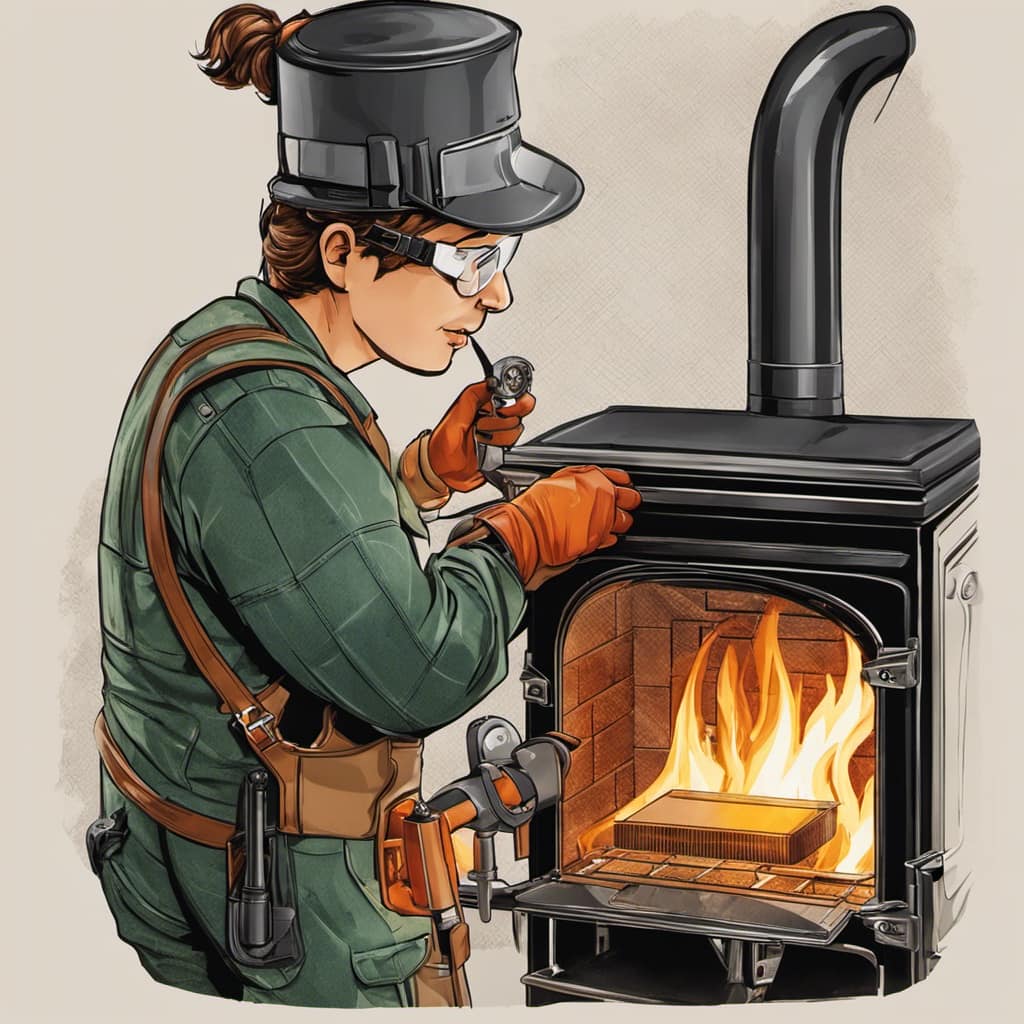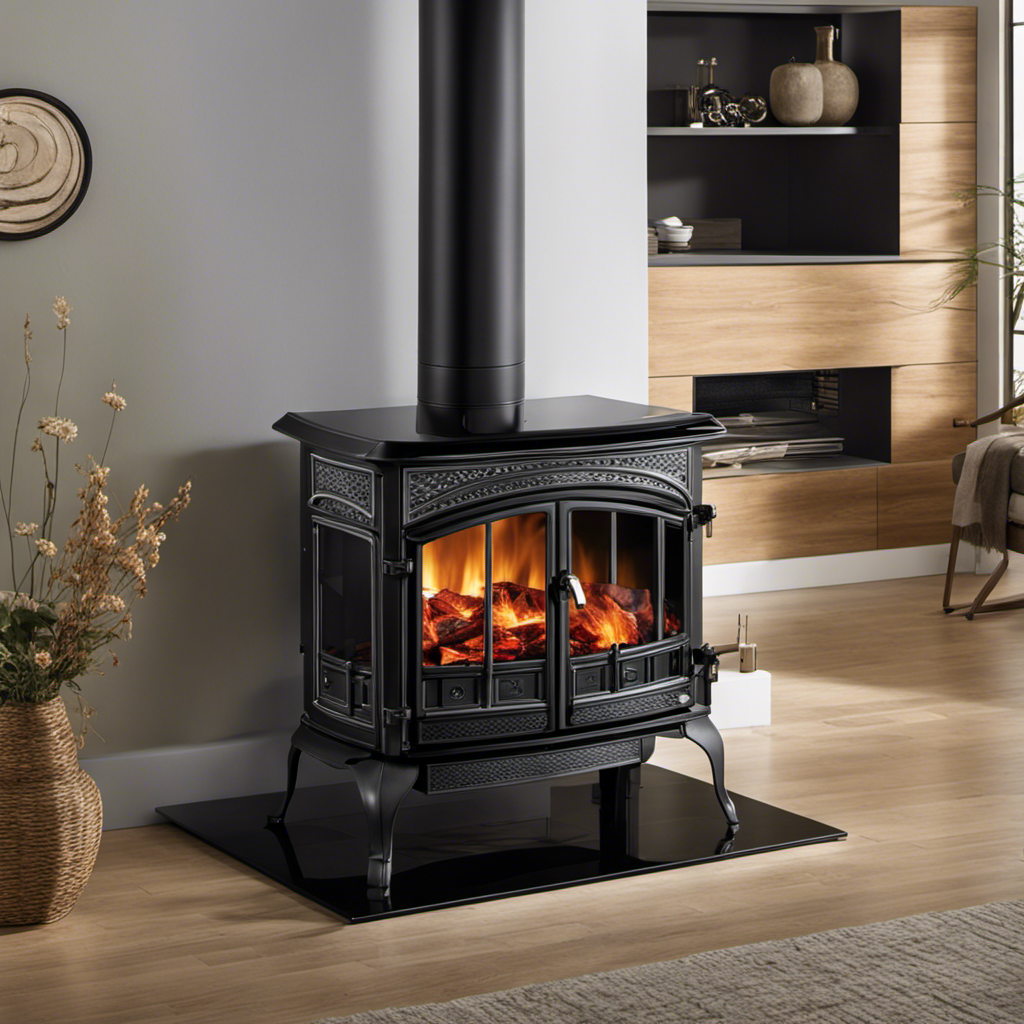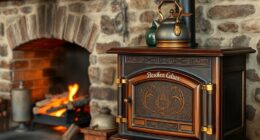I have always been enchanted by the gentle crackling sounds and warmth of a wood stove, enveloping me in a sense of comfort similar to a soothing hug.
But with so many options out there, choosing the right one can be overwhelming. That’s why I’ve compiled this guide to help you navigate through the world of wood stoves.
From the different types to key features and installation tips, I’ll provide you with the knowledge you need to make an informed decision.
So let’s dive in and find out which wood stove is perfect for you.
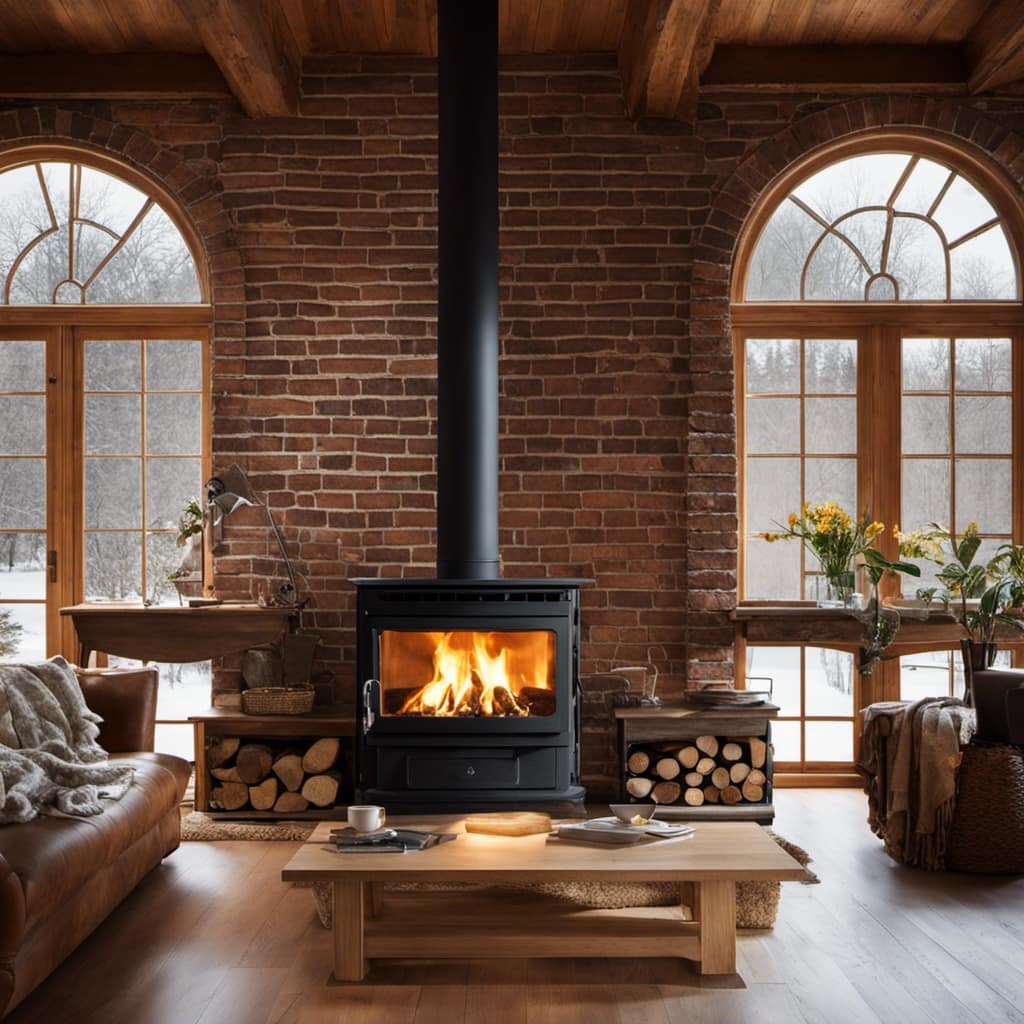
Key Takeaways
- Pellet stoves are highly efficient and environmentally friendly options for wood stove heating.
- Heating capacity should be considered based on the size and layout of the space, as well as climate conditions.
- Look for EPA certified wood stoves with high efficiency ratings for cleaner and more efficient burning.
- Proper installation, regular maintenance, and professional inspections are important for safe and efficient operation of wood stoves.
Types of Wood Stoves
I prefer the efficiency of a pellet stove over other types of wood stoves. When it comes to choosing a wood stove, there are many options available, but for me, the pellet stove stands out as the top choice. Some of the well-known brands in the market include Harman, Quadra-Fire, and Englander.
Pellet stoves are highly efficient and can provide consistent heat output. They use compressed wood pellets as fuel, which burn cleanly and produce minimal ash. This not only reduces the environmental impact of wood stoves but also makes maintenance easier.
Additionally, pellet stoves offer the convenience of automated feeding and temperature control, ensuring hassle-free operation. With their advanced technology and environmentally friendly features, pellet stoves are a great option for those who value efficiency and sustainability.
Key Features to Consider
One important feature to consider is the stove’s heating capacity. This refers to how much heat the stove can produce and how well it can distribute it throughout the room or house. When choosing a wood stove, there are several factors to keep in mind:
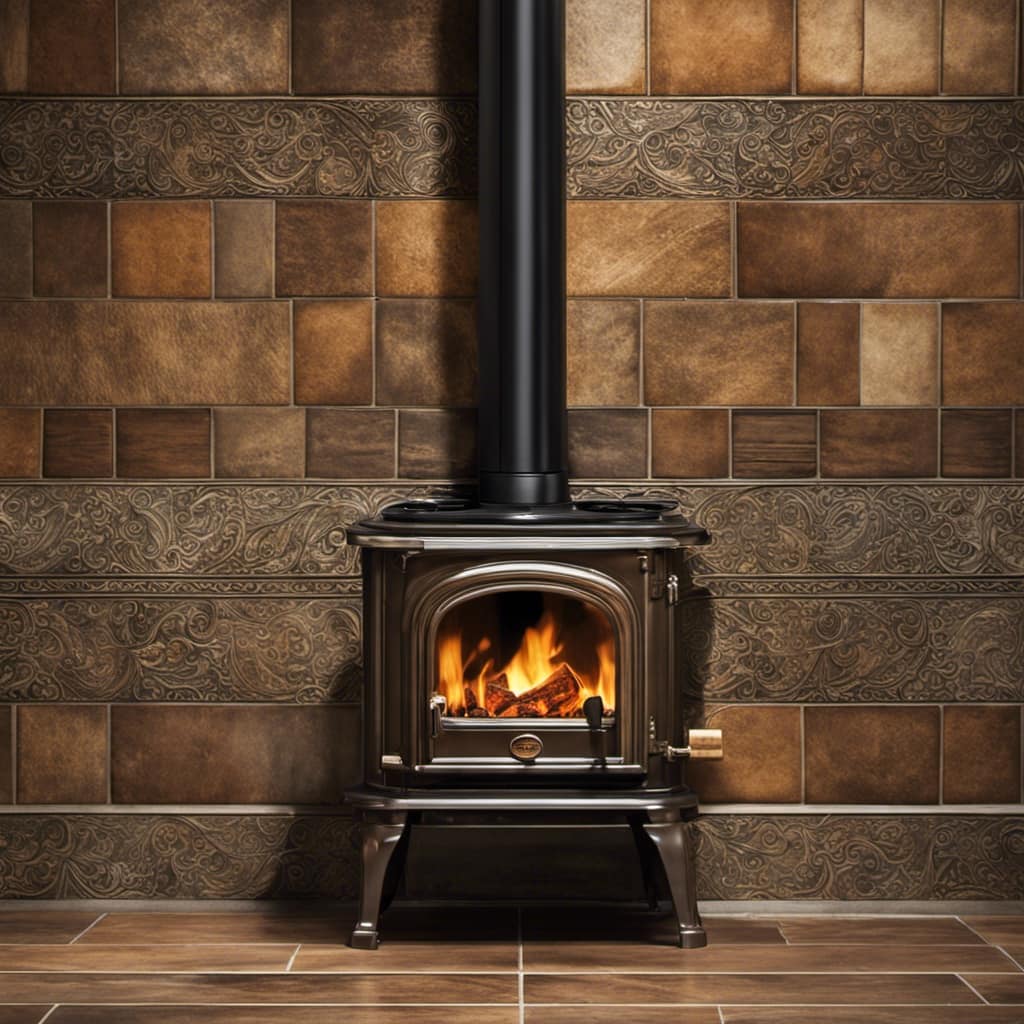
- Size and layout of the space: A larger room or house will require a stove with a higher heating capacity.
- Insulation: Well-insulated spaces will retain heat better, allowing for a stove with a lower heating capacity.
- Climate: Colder climates will necessitate a stove with a higher heating capacity.
Cost and budget considerations should also be taken into account. Wood stoves vary in price, and it’s important to choose a stove that fits within your budget. Additionally, it’s worth considering the environmental impact of the stove. Look for stoves that are EPA certified and have high efficiency ratings, as they’ll burn wood more cleanly and produce fewer emissions.
Efficiency and Performance
The efficiency and performance of a wood stove greatly impact its heating capacity and environmental impact.
When it comes to fuel options for wood stoves, there are several choices available. The most common fuel used is firewood, which can be sourced from sustainable forests or purchased from local suppliers. Other fuel options include wood pellets and wood briquettes, which are manufactured from compressed sawdust and offer a more efficient and cleaner burn.
In terms of environmental impact, wood stoves can emit pollutants such as particulate matter and carbon monoxide. However, modern wood stoves are designed with advanced combustion technology that reduces emissions and increases efficiency. It’s important to choose a wood stove that’s EPA-certified, as these models meet strict emission standards and are more environmentally friendly.
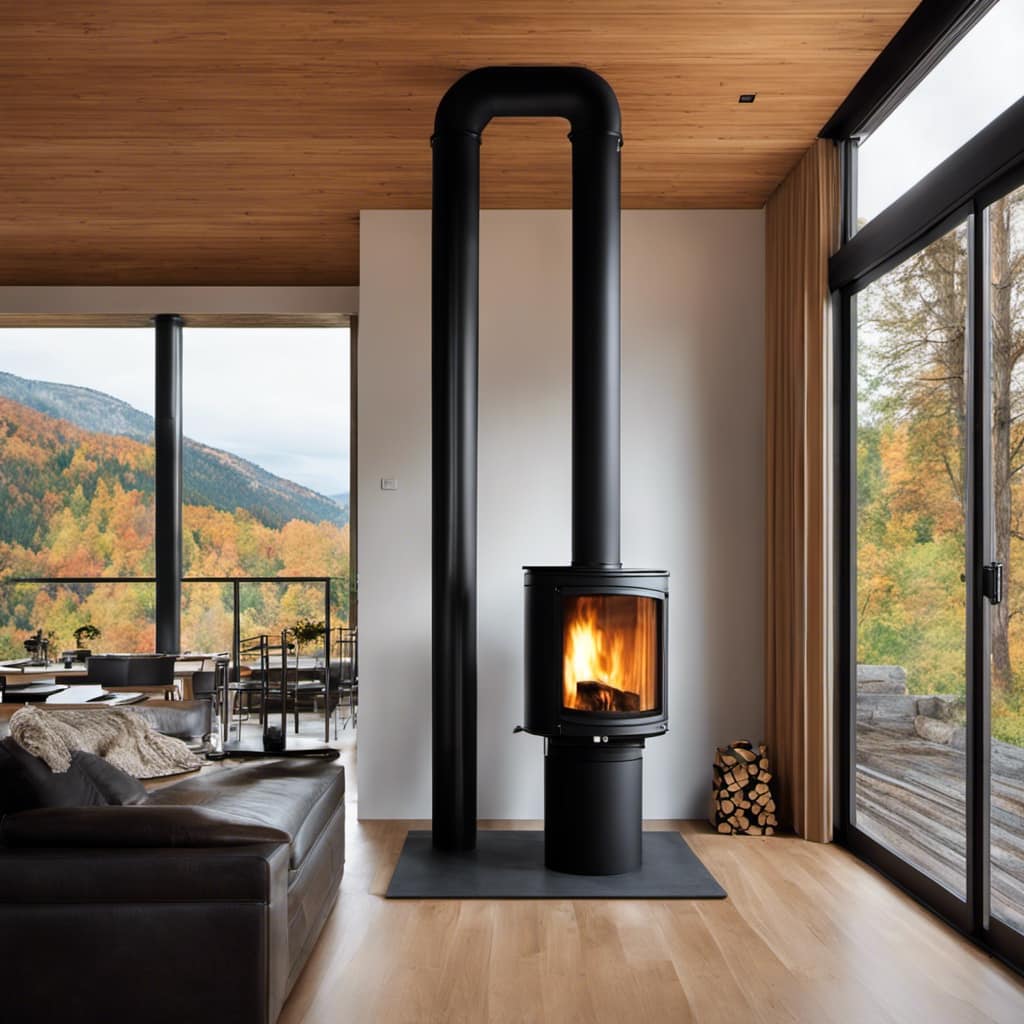
Size and Heating Capacity
When considering a wood stove, it’s important to assess the size and heating capacity to ensure it can adequately warm the desired space. Wood stove brands vary in terms of size and heating capacity, so it’s crucial to choose one that matches your needs.
Here are some key factors to consider when evaluating the size and heating capacity of a wood stove:
-
Size:
-
Measure the available space where you plan to install the wood stove.

-
Consider the clearance requirements for safety and installation purposes.
-
Determine the size of the firebox to ensure it can accommodate the desired log length.
-
Heating capacity:
-
Calculate the square footage of the area you want to heat.
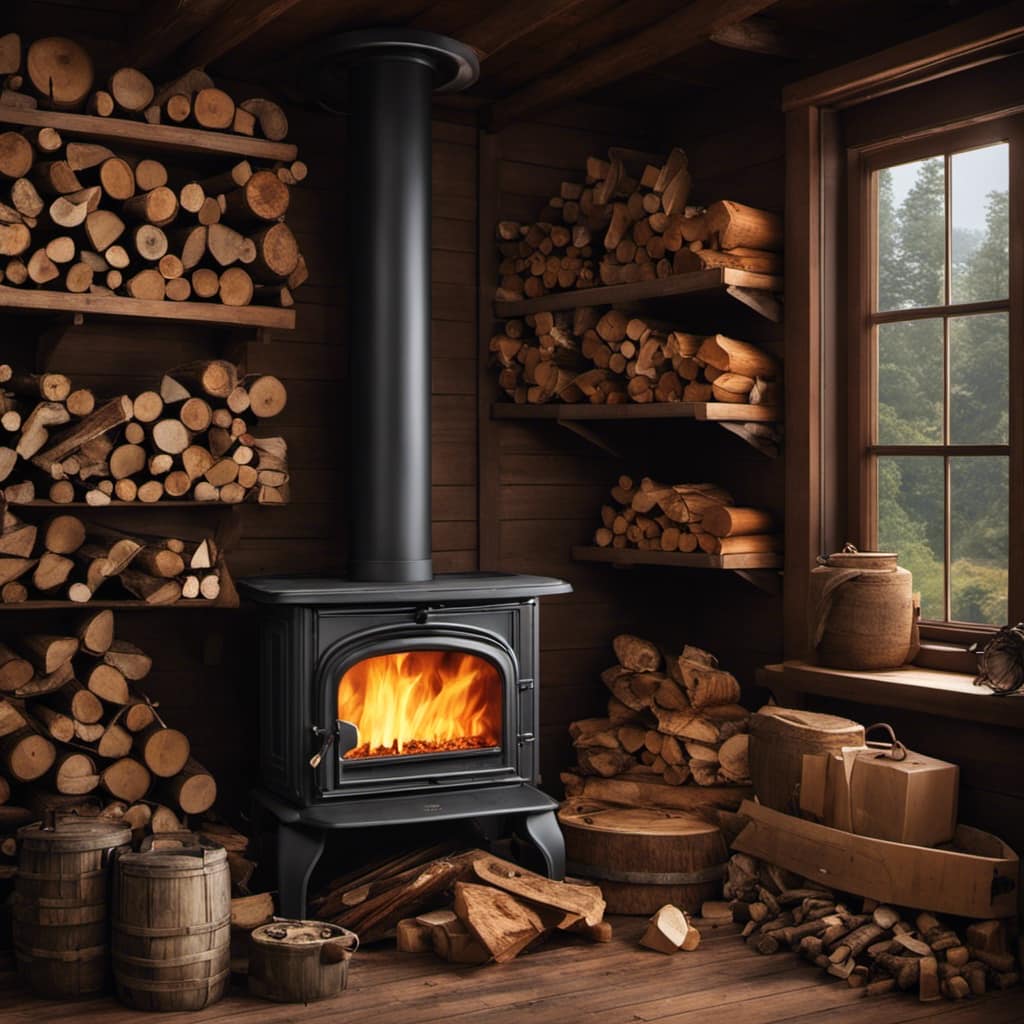
-
Check the BTU (British Thermal Units) rating of the wood stove to determine its heating power.
-
Consider the insulation of your home and the climate in your area to determine the appropriate heating capacity.
Installation and Maintenance Tips
I find it helpful to follow these installation and maintenance tips for a wood stove.
When it comes to installation, it’s important to choose a suitable location for your stove. Make sure you’ve enough clearance from combustible materials, and consider the proximity to a chimney or vent. When installing the stovepipe, use proper materials and follow the manufacturer’s instructions carefully.
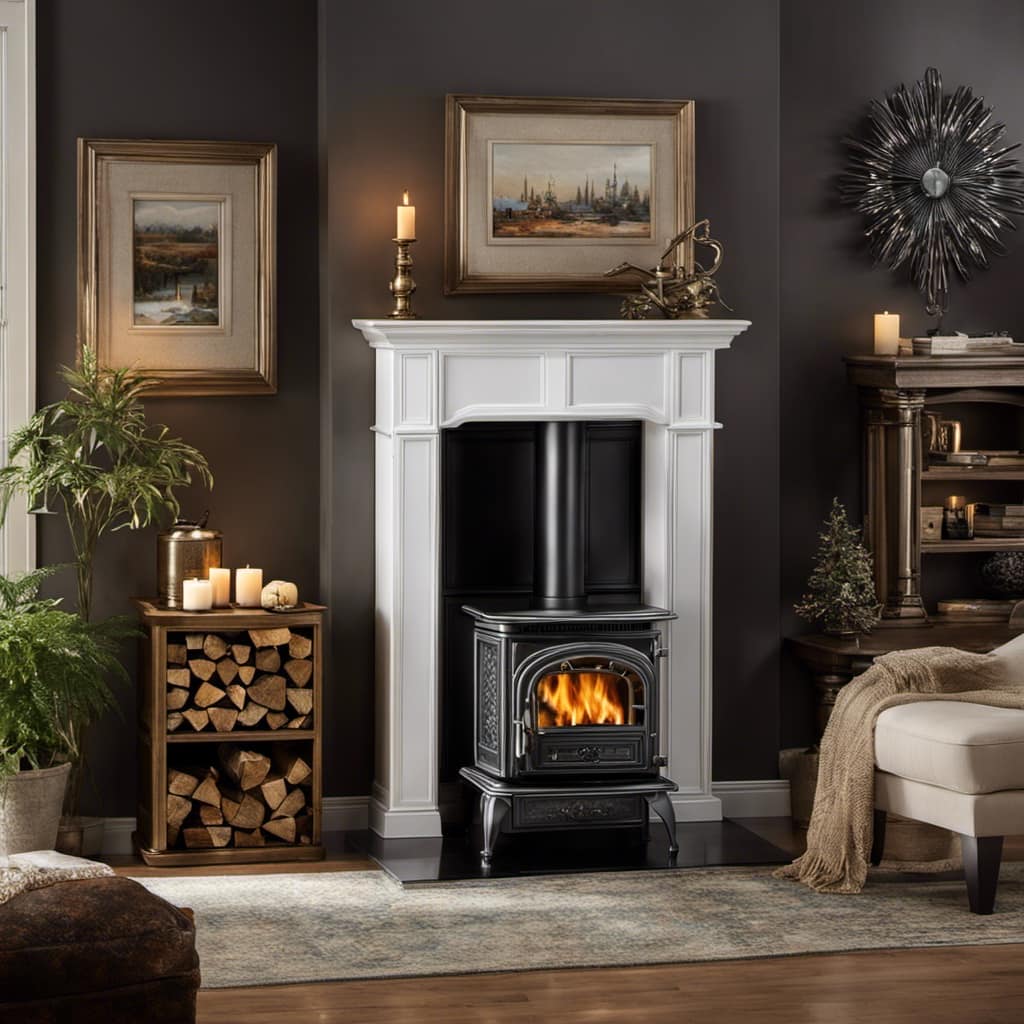
As for maintenance, regular cleaning is essential to ensure efficient and safe operation. Clean the ash and soot buildup from the stove and chimney periodically. Check the gaskets and seals for any signs of wear and replace them if necessary.
It’s also important to have your wood stove inspected annually by a professional to identify any potential issues and ensure optimal performance.
Frequently Asked Questions
What Are the Potential Health Risks Associated With Using a Wood Stove?
Using a wood stove can pose potential health risks due to poor indoor air quality. Smoke and particulate matter can lead to respiratory issues, such as asthma and bronchitis. Proper ventilation and maintenance are crucial for minimizing these risks.
How Do I Properly Clean and Maintain the Glass Door of a Wood Stove?
To properly clean and maintain the glass door of a wood stove, I recommend using a soft cloth or sponge and a mild glass cleaner. Avoid abrasive cleaners that can scratch the glass.
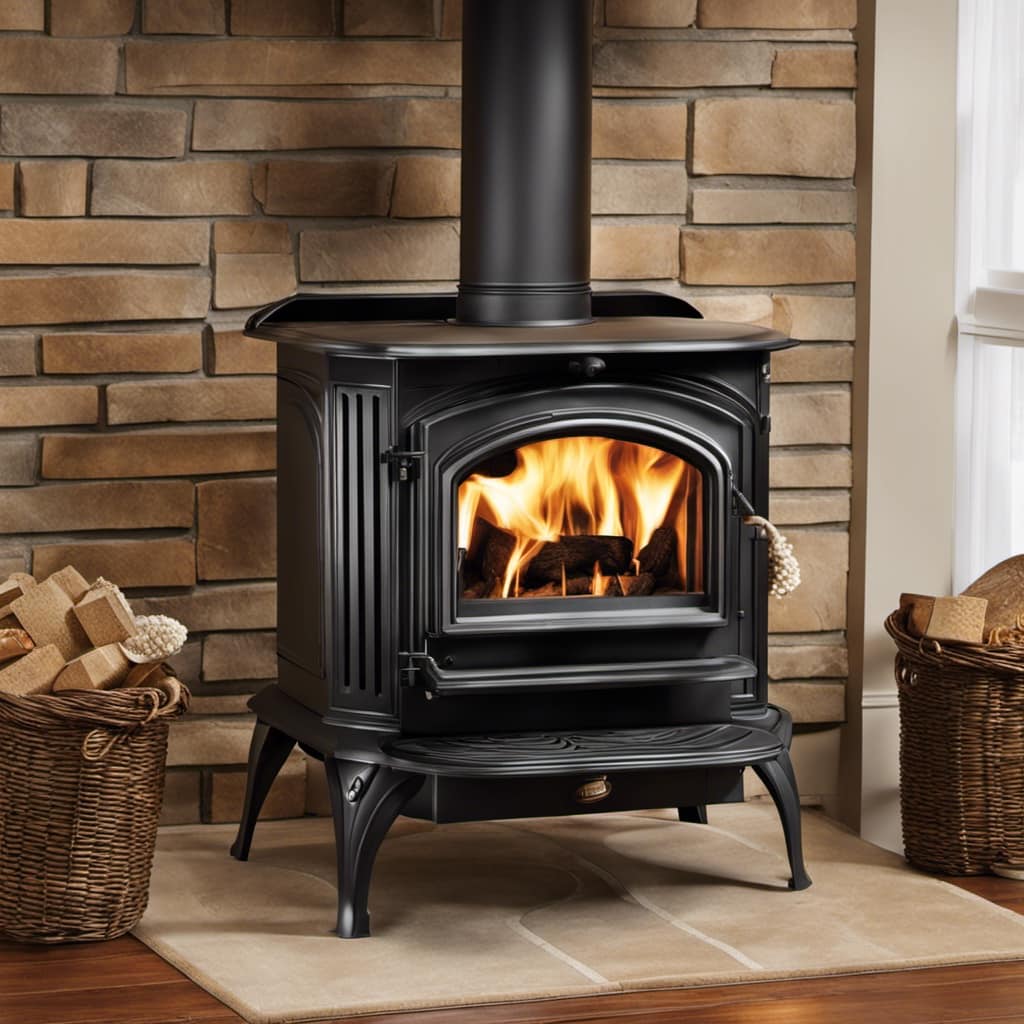
Can I Use a Wood Stove for Cooking or Baking?
Yes, you can definitely use a wood stove for cooking or baking. It’s like having a rustic kitchen in your home, bringing out the flavors and benefits of wood-fired cooking methods.
Are There Any Specific Regulations or Permits Required for Installing a Wood Stove in My Area?
Yes, there are specific regulations and permits required for installing a wood stove in my area. It’s important to check with local authorities to ensure compliance and obtain the necessary permits before installation.
How Long Can I Expect a Wood Stove to Last Before Needing Replacement or Major Repairs?
I can expect a wood stove to last around 10-20 years before needing replacement or major repairs. Regular maintenance and proper usage can extend its lifespan. Wood stoves offer efficient heating and numerous benefits for a cozy home.
Conclusion
In conclusion, choosing the right wood stove for your home requires careful consideration of its type, key features, efficiency, size, heating capacity, installation, and maintenance.

For example, let’s imagine a hypothetical scenario where a family in a cold climate is looking for a wood stove to efficiently heat their large living area.
By selecting a high-efficiency stove with a large heating capacity, they can enjoy a cozy and warm environment while minimizing their heating costs.
Growing up surrounded by the vast beauty of nature, Sierra was always drawn to the call of the wild. While others sought the comfort of the familiar, she ventured out, embracing the unpredictable and finding stories in the heartbeat of nature.
At the epicenter of every remarkable venture lies a dynamic team—a fusion of diverse talents, visions, and passions. The essence of Best Small Wood Stoves is crafted and refined by such a trio: Sierra, Logan, and Terra. Their collective expertise has transformed the platform into a leading authority on small wood stoves, radiating warmth and knowledge in equal measure.


